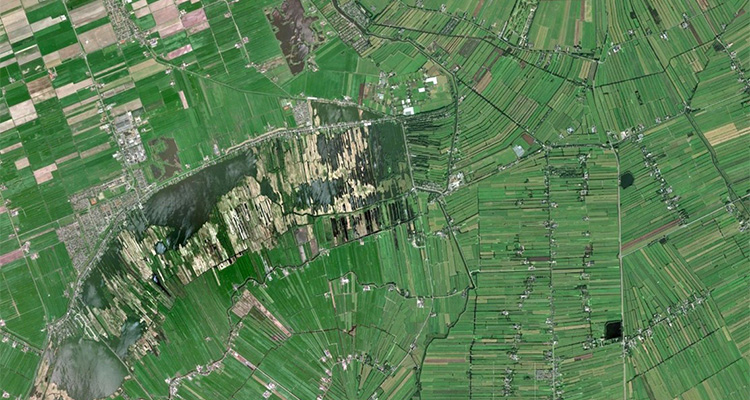
Project
Can't Escape the Waterscape - Redeveloping water and governance systems for dealing with climate impacts in the Dutch Delta
With projected increase in floods and drought it is apparent that the Dutch water system needs to change. In WaterScape we explore large scale spatial transitions in the physical and governance water system. In this project we explore, opportunities, challenges and conflicting interest between different land use and stakeholder groups. With the full consortium we will study three living labs in: Brabant, Utrecht’s Heuvelrug and Groningen with the potential to expand our findings to regional and national scale to create a more climate robust water landscape for the future.
Background
With an increasing frequency and intensity of floods and droughts, increasing water demand, and problems of land subsidence and salt-water intrusion, it becomes apparent that the present water system in the Netherlands cannot be maintained. A water transition is needed from rapidly discharging water and preventing floods to storing water
and living and farming with water to improve dealing with droughts, poor water quality and limited freshwater availability. WaterScape supports this transition by developing innovative storylines for waterscapes. Waterscapes are climate robust and adaptive water systems at landscape scale. WaterScape will enable waterscapes by treating governance and physical design as equally important parts of the required water transition and, hence, storylines. As part of the storylines, WaterScape will develop transformation pathways for both the physical and the water governance system, that are based on rethinking climate impacts, desired future scenarios and existing system functions, organizing inconvenient dialogues with stakeholders, and exploring required changes within the governance context.
WaterScape will embed these pathways within governance arrangements that enable coordination and adaptation of policy investments in the water system. By involving key stakeholders in the design, production and dissemination of knowledge we do not only focus on designing for the ideal situation from a physical perspective but focus on designing for concrete and possible short-term and longer-term changes of physical measures, water management principles, and governance.
Description
Our work package (WP4) aims to design transformation pathways to integrated, just and adaptive governance arrangements that enable coordination between actors to establish waterscapes in the Dutch Delta. In this WP, we distinguish between on the one hand the subject of governance, i.e. the discourses or frames about problems and solutions, and on the other hand the organisation of the governance, i.e. the governance arrangement. The governance arrangement is understood as the combination of actors, rules, substantive and procedural policy instruments, processes and decision-support methods with which societal (in this project: water-related) problems are. WP4 will focus on an analysis of previously made decisions, the use of decision-support methods as part of decision-making processes, the frames about problems and solutions of stakeholders, and designs of pathways towards future waterscapes. These pathways will include the future policy decisions to be made, changes to decision-making processes, and concrete proposals for long-term policy programs such as the Delta program and national program for the Dutch rural areas (Nationaal Programma Landelijk Gebied, NPLG).
The activities of this work package can be divided into four steps:
- Analysis of past decisions, assumptions and use of decision-support methods that shaped the existing land use and water systems: how have combinations of actors, rules, instruments, processes and decision support methods developed and performed over time?;
- Analysis of frames: How do actors frame past, present and future images of the Dutch rural area and water system in interaction and what is the potential for frame connection? In this step we will analyse the frames that actors employ and how they interact with each other, using (social) media analysis and focus group discussions.;
- Identification of crucial forward-looking decisions and transformation pathways to waterscapes: What crucial and forward-looking decisions can be identified to establish waterscapes when considering timescales and issues of 10, 20 and 30 years ahead. We will organize participatory workshops (led by WP7) to backcast forward-looking decisions about water infrastructure investments and policies that are needed to arrive at waterscapes.;
- Design of new governance arrangements: What are transformation pathways towards integrated, just and adaptive governance arrangements for Dutch waterscapes? In this step, we will compare the existing context with the decisions and processes needed to arrive at waterscapes.